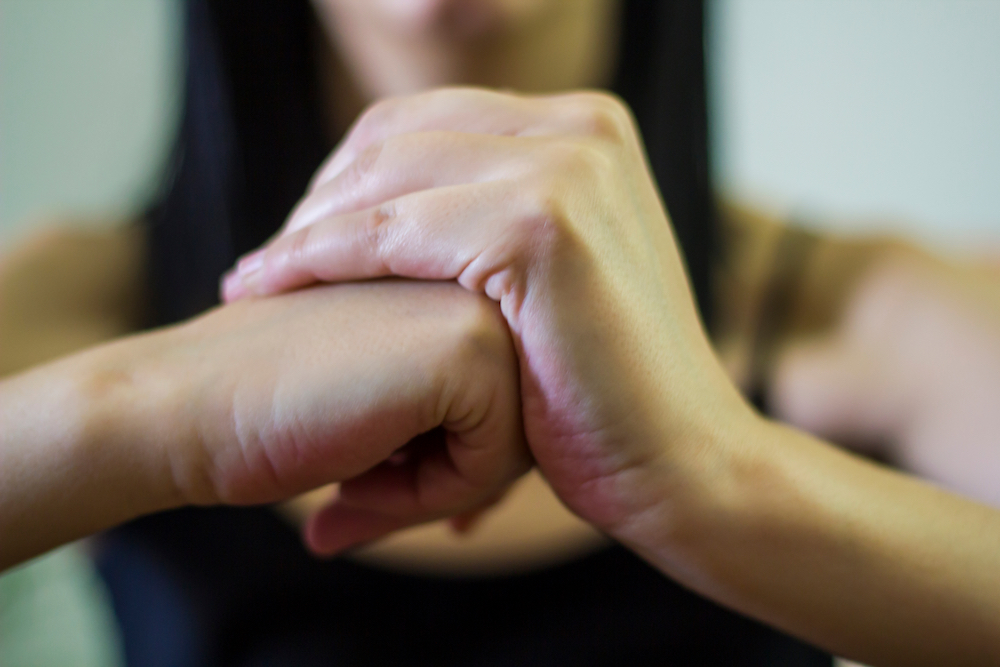
While it’s probably not going to lead to harm, cracking your knuckles doesn’t necessarily have any benefits, either.
We all know a knuckle cracker. If you’re one yourself, you probably spent your childhood listening to well-meaning adults tell you to stop, before you cause damage to your joints.
As an adult, you might also get a feeling of relief out of cracking your back or neck — but why does this happen, and is it safe? Here’s what you should know.
Knuckle cracking: probably safe
Doctors have debated for decades about why joints make that “popping” sound. The prevailing theory used to be that it was the sound of a bubble bursting in the synovial fluid that surrounds the joints, but current research suggests it is actually the creation of a cavity, or negative space, in the fluid that leads to the noise.
However the sound is created, studies have shown that cracking your knuckles doesn’t lead to the later development of osteoarthritis, a condition that occurs from wear and tear on the joints. Despite what your grandma may have told you, knuckle crackers don’t seem to have a higher rate of arthritis than non–knuckle crackers.
There has been some research to suggest knuckle cracking may lead to hand swelling and reduced grip strength, but this evidence is not strong, and other studies have not replicated these results. Likely, there will be no long-term damage from such cracking.
“There have been a few clinical studies on knuckle cracking in the hand,” says Rachel Lefebvre, MD, an orthopedic surgeon at Keck Medicine of USC and assistant professor of clinical orthopedic surgery at the Keck School of Medicine of USC. “From what we have so far, it looks like there is no correlation between knuckle cracking and joint damage or arthritis.”
Neck or back cracking: leave it to the pros
What about neck and back cracking? Thanks to our sedentary lifestyles of sitting at our desks all day and our penchant for staring down at our phones, which leads to “text neck,” we may find ourselves having neck or back pain. Somehow, the feeling of release you get after a good crack seems to make it better (although some research has shown that this may be a psychological placebo effect).
While it’s probably okay to occasionally self-crack your neck or back, don’t have a friend do it for you, because they could apply too much pressure and cause injury. When you’re talking about your spine, you want to be careful — so only get your back or neck adjusted from a licensed chiropractor or physical therapist.
Even then, there has been research indicating neck manipulations could in rare cases lead to stroke, so make sure you tell your practitioner, if you are at an increased risk of stroke. And be sure to talk to your health care provider, if you have any concerns about the risks of such procedures.
“The evidence of whether or not cracking your neck can cause damage is fairly inconclusive,” says Raymond J. Hah, MD, an orthopedic surgeon at the USC Spine Center of Keck Medicine and assistant professor of clinical orthopedic surgery at the Keck School. “There is no evidence that cracking your neck or back is a risk factor for disc degeneration.”
If you don’t want to go the professional route, other home remedies may be effective for neck and back pain besides cracking. Try massage or a back rub, or apply heat or cold. Better yet, remember to get up and stretch every once in a while, to prevent the aches and pains that come from prolonged sitting. Exercise can also benefit anyone with joint problems, so make sure you keep active.
If there’s pain, see your doctor
Although neck, back or knuckle cracking is probably harmless, the exception is if it causes pain. In that case, it could be a problem with the structure of the joint or surrounding areas, such as torn cartilage or damaged ligaments. If you already have arthritis or another issue, such as tendonitis, that could also be the cause of pain with cracking. Talk to your doctor to address the underlying problem, if you experience an uncomfortable feeling with joint cracking.
Topics
